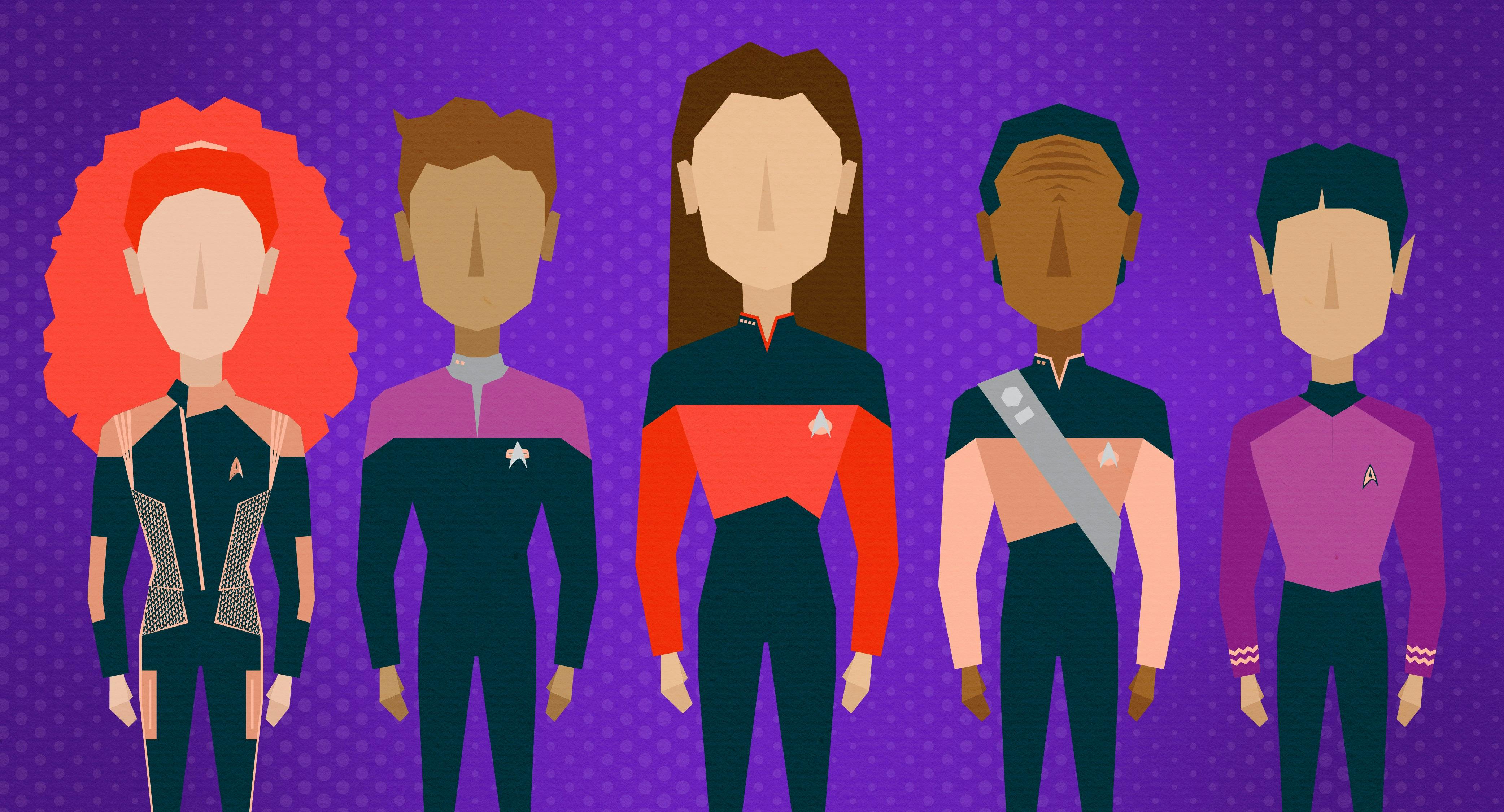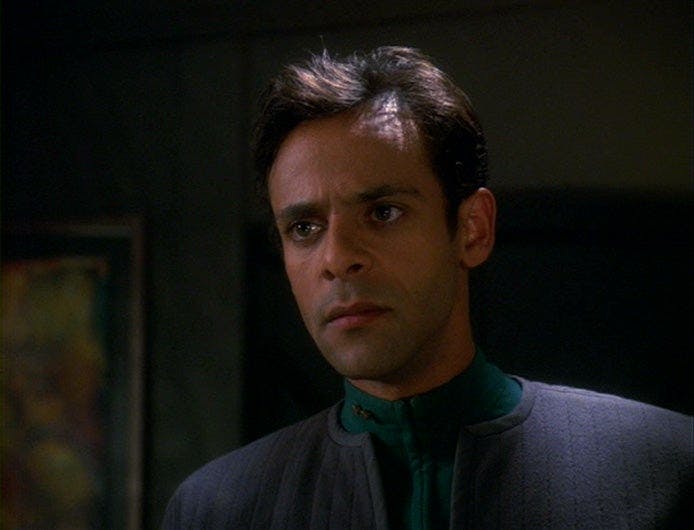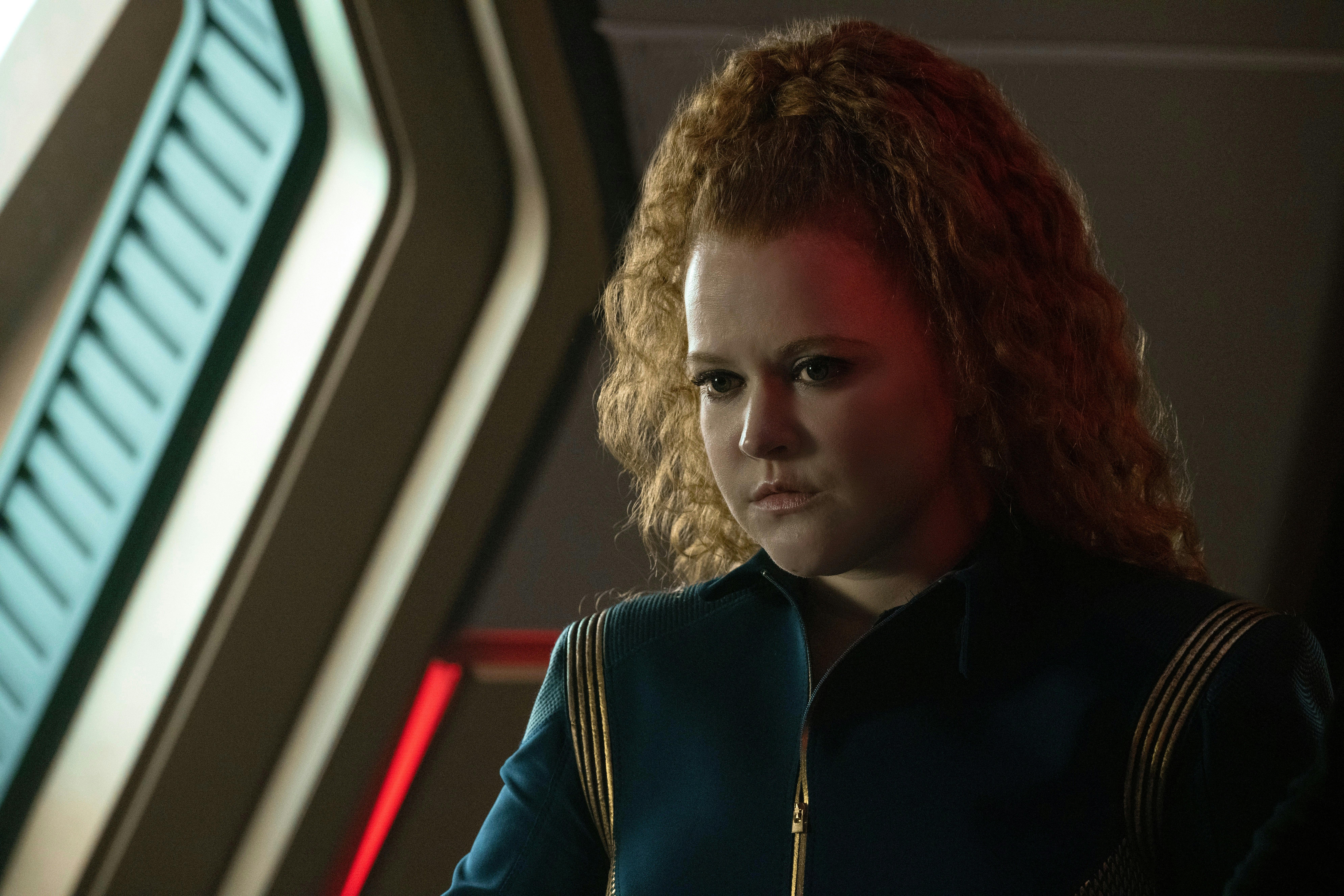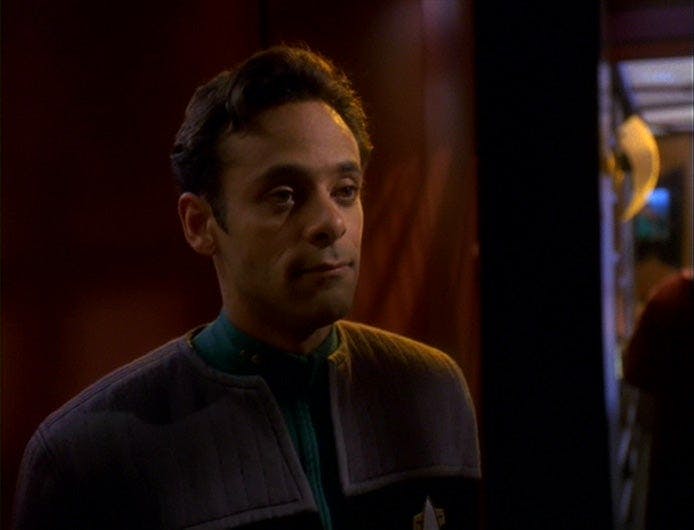Published Feb 22, 2021
IDIC Includes Me, and That's Why Star Trek Matters
"I have always felt like an alien in a world of Humans because I see the world and situations differently than others, and that is a lonely path to tread."

StarTrek.com
I feel that Star Trek is a part of me because it helps me to identify with who I am as a person and I believe that it also teaches that being different than others isn't bad or wrong; it is acceptable and encouraged. I am working on being happy as I am because Infinite Diversity in Infinite Combinations most definitely includes me.
I have Non-Verbal Learning Disorder, which is on the autism spectrum, along with ADHD and I've always felt like I stand apart from they who are 'normal.' I was only accurately diagnosed about 10 years ago after suffering through many years of misdiagnoses, stigmas, neglectful doctors, and disastrous experiences with medication. I have always felt like an alien in a world of Humans because I see the world and situations differently than others, and that is a lonely path to tread.
Even though I see my neurodivergency as a burden a lot of the time, I also have learned to make the best of it over the years, as many Star Trek characters and crews have done when faced with challenging circumstances beyond their control. I've got 15 years of experience in journalism, 24 years on and off in small acting jobs, 10 years in filmmaking/producing, and I've been writing since 1994. COVID-19 did not stop my desire to work hard and I found ways to keep busy, but socializing became more difficult than it already was to begin with. With in-person socializing suddenly gone, I knew I had to get creative.
Among other things, I ended up delving into some virtual Star Trek fan groups to pass the time. It was very stimulating for me and helped assuage feelings of loss I had associated with the pandemic. One of those clubs involved being able to chat with an actual Star Trek actor over Zoom. After signing up repeatedly, I was finally chosen to chat with the actor. During that chat, I shared about how I was a freelance journalist and how I worked very hard over the past 15 years to create the most ethically correct stories possible. The actor seemed impressed and asked why I was only in freelancing since I appeared to have such passion and talent. I was scared to death of telling the truth, so I lied and said it was due to a lack of connections, and was immensely relieved when the actor changed the topic to something else.
My real answer to that actor’s question, however, was that I don't have a huge career simply because at least in my neck of the woods, employers look at people with my type of disability and think them utterly unemployable and unmanageable. Freelancing is not the same as steady work and I wish I could get steady work, but I cannot seem to impress or make an employer comfortable enough with the neurodivergencies that make me who I am — in part, a talented and impassioned writer.

StarTrek.com
Despite the Star Trek world proclaiming and standing by the IDIC principle, the reality is that mainstream society is still a long way from embracing it. As such, I have constant struggles with socialization and trying to fit into social, religious, or familial groups because people expect me to act a certain way and express anything but patience with my shortcomings. I am very fortunate, however, that I have enough professional skills and experience that I can manage to make the most of what opportunities happen to open themselves to me. It takes a lot of effort to hide my quirks so I can function professionally, but I manage.
I liken that part of my life and myself to Julian Bashir’s obsession with hiding his true self from everyone around him simply because he felt ashamed of what was beyond his control. Even though it was his parents who had him genetically engineered, Julian blamed and shamed himself for the entire situation, as I sometimes do even though being born neurodivergent isn’t something that was within my control. Even after he was exposed as being different, he did his best with what he had. Unfortunately, Julian was also severely under-appreciated and even taken advantage of because of who he was. I can empathize with Julian’s struggles, as I often find myself misunderstood and shunned over my lack of social intelligence. I can learn how to be better, but it is not a quick process and people don’t show compassion over my ‘pace.’
In reflecting on my own experiences, I thought about not only Julian Bashir, but also about Reginald Barclay, Spock, Worf, Tilly, and Data. I see all of them as being divergent individuals who always gave their best efforts to fit in with the big crowd, but ended up being a target of bullying, gossip, and malice because they were divergent. Each individual was somewhat marginalized socially and professionally because some typical individuals were dead set against trying to be more inclusive towards them. Fortunately, they did have people who loved and cared about them enough to help them find their niches. Never mind the fact that they weren't like everyone else, they were seen as good enough to approach success. Spock had Kirk and McCoy; Data had Picard; Barclay had the crew of Voyager; Worf had friends wherever he served; and in recent episodes of Discovery, we see that Tilly acquired an advocate in Saru because he expressed faith in her abilities when everyone else didn’t.

StarTrek.com
When I was born, nobody at the time knew exactly what to call neurodivergence; they just knew I wasn’t like everyone else. When I was just three years old, my family doctor at the time told my mother that I would be better off in a group home because my divergency would only be a burden to her. My mother, however, refused to give up on me and enlisted close friends to help raise me because my father didn’t want to help. I was extremely innocent and oblivious, however, to the fact that I was a laughingstock of those around me. I was, though, somewhat academically gifted and used that to attend school at an earlier age. In that way, I liken myself to Julian Bashir as he visibly struggled with appropriate social behaviors despite being intellectually gifted.
The lack of understanding from teachers in terms of my differences made me realize very early on that I was different than other children my age. My mother would constantly fight with teachers who thought me stupid simply because of the problems I had. This resulted in me going to six different elementary schools. And while I only went to one junior high school and one high school, junior high was a struggle because of my consistent struggles with socializing.
I have good education, insane work ethic, great skill and talent, but people are afraid of taking a chance on me. It’s a harsh reality; not everyone finds caring people to help them find joy in who they are. Julian Bashir is a prime example of how some don’t ever find peace with who they are. He forgave his parents and himself for what he was, but it’s questionable whether or not he came to terms with it at all. Julian never truly got to find joy in who he was. From the time he was exposed, he was dealt a wounding blow that never had the opportunity to fade or go away. Julian was doomed to endure that burden forever.
I am a survivor of violence administered by my alcoholic, abusive father who hated my neurodivergency when he was alive. He also told my brother that I wasn't worth loving because of it. To be hated and treated with violence over such differences does leave a lasting impact, and adds to the trauma that can come with being a neurodivergent person simply because of how others react. I always worry about being exposed as neurodivergent to strangers because of the stigmas attached to it. I've had to learn to not take responsibility for problems that are not mine, including how people react to me being a neurodivergent individual. I've got a ways to go before I am fully comfortable with myself, though.

StarTrek.com
In my constant journey to overcome the trauma of the past, I gleaned some very helpful advice from Alexander Siddig and Nana Visitor when I got to spend time with them at a virtual event in October 2020. Alexander Siddig’s advice was, "Be yourself and be okay with being yourself. Be kind and compassionate and respectful to yourself." He also talked about establishing boundaries and learning to not care about how people react to differences. There was a point at the event where I got to personally speak with both of them and during that time, I shared about surviving violence that came about because I was born different. It was then that I learned Alexander Siddig had a great ability to listen thoughtfully and I saw nothing but compassion in his entire facial expression as I shared my past. Nana also made a point of gently, but firmly telling me that I needed to grant unto myself forgiveness and self-compassion while showing the same compassion in her expression. She said that what I’ve endured was completely beyond my control and not my fault.
Not everything is in my control, especially being born with neurodivergent tendencies, and I need to truly embrace who I am. My difficulties do not have to be burdens and Star Trek shows that it is very possible to make burdens into beautiful blessings. The world of Trek shows that people go through difficult things every day and not everything is within their control, but what they make of life most certainly is. To have faith in my ability to accept myself is definitely in my power too and I need to learn to accept who I am, as this is not curable. This is who I will be for the rest of my life.
A Timeline Through the Star Trek Universe
Heather Leigh Cameron (she/her) is a dual citizen of both Canada and the United States. She is a freelance writer who also happens to be neurodivergent and has a passion for writing, acting, video-making, playing clarinet, and cooking.

